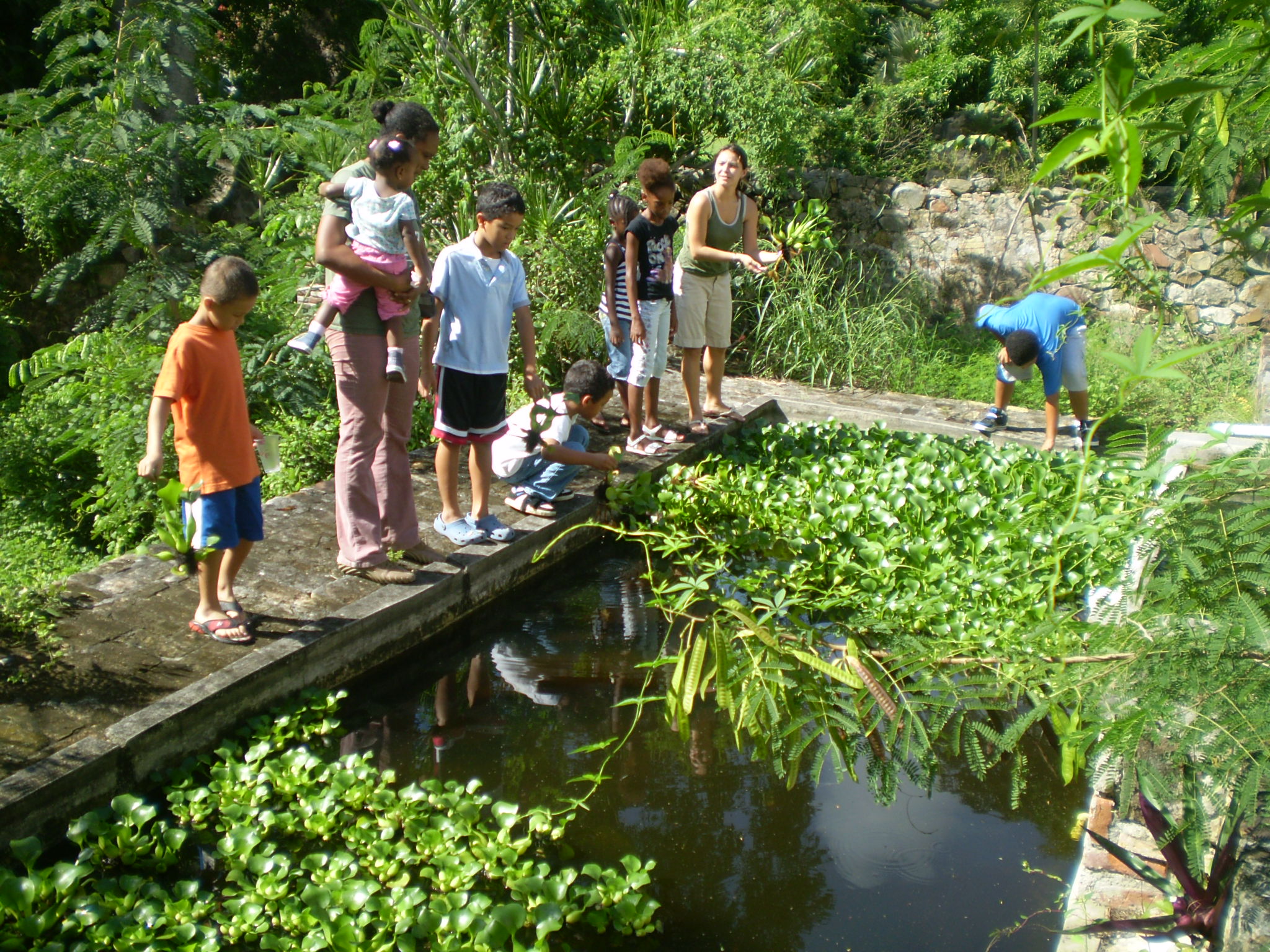
The participants in the Second Saturdays program picked invasive water plants, mixed them into a slimy green pulp and turned it into rudimentary paper.
“I learned about papyrus-making in school,” said nine-year-old Matthew Low. “Doing the real thing made me know how it’s done. It helped with science and history. ”
Accompanied by an adult, children trekked to a holding pond filled with invasive water hyacinths where they pulled up plants, roots and all. The pond was two-thirds full after being planted in June. The invasive plant can take over an entire pond in days.
Melanie L. Feltmate, education coordinator at the Garden, had participants chop up the hyacinth, except for the roots, add water and whirl in a blender. Feltman said it was to release the cellulose — a natural glue. They dipped a fine mesh covered embroidery hoop in the slurry then flipped it onto newspaper and set it in the courtyard to dry.
Then they scurried to get the paper in when showers briefly hit.
Recycled paper was made tearing newspaper into strips and adding water. To cover up the gray color they added food coloring and construction paper and added dried flowers and seeds.
Feltmate also emphasized the ecological cost of paper making, She said 10 million trees are cut down every day. The average American uses 800 pounds of paper and third world people use 24 pounds.
“If we recycle 1 ton of paper we save 17 trees,” Feltmate said. “This program gives more of an appreciation for paper and understanding the importance of paper,” Feltman said.





